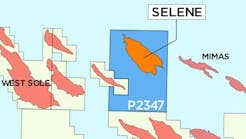Daniel JohnstonWhile some of the madness has cooled, Russia is still a hotbed of activity. For most of the 1990s, the country has experienced a black goldrush of biblical proportions. But is anybody making money producing oil there? It is a tribute to the frustration of doing business there that a question like this is even asked, after nearly a decade of activity.
Petroleum Consultant
Daniel Johnston & Co., Dallas
The common refrain as with goldrushes in the past is "If you are not there now, it is going to be too late." I have a difficult time with this mentality. There still have not even been a million wells drilled in Russia compared to over three million in the United States.
There are, of course, some big differences between the two countries, but a difference of well over two million wells is too substantial to believe that "too late" could happen any time soon.
You could throw the whole state of Texas into the Western Siberian Basin. While it would make a splash, there would still be room for the rest of the US's producing states in the lower 48.
Up to this point, the industry's expectations, compared to their experiences, are like the difference between good caviar and bad caviar - huge.
Russia opened its doors just at a time when many major oil companies were realizing that their exploration efforts were not so successful. Capital is being redirected towards less risky ventures such as large-scale development or rehabilitation projects. Russia has these in abundance.
It is so comforting to be able to virtually ignore the harsh geological risks of exploration. Yet, the opportunities in Russia come with some heavy baggage. Unfortunately, as with other "booms" and goldrushes, the landscape is cluttered with numerous fools and charlatans. This perhaps was the most astonishing aspect for the Russians - sorting out who is legitimate.
On one end of the spectrum there were large multinational oil corporations with annual revenues that rivaled some countries' GDP. On the other hand, there were "oil men" from, say, Midland, Texas, whose closest brush with anything international was a foray into Tiajuana, Mexico during spring break in high school.
Plane loads of "entrepreneurs" have been arriving in Moscow from everywhere. For the Russians, it must be like being the only girl at the dance.
Things have slowed down a bit now. Or rather, most projects are "dead in the water". Considering the plethora of Western Siberian projects, this is an appropriate way of looking at it, because six months out of the year, it is virtually an "offshore" province.
The country went from serfdom to communism in the twinkling of an eye. Western concepts of ownership and profit, while understood by some Russians, have simply not been internalized and generally accepted. Beyond that is the more important issue of the distribution of wealth - who is going to get what.
There is a struggle between authorities at the federal level, the oblast level, the municipal level, (weak as that link is), the geophysical associations (who happened to have found the oil), and the production associations. Nobody wants to get left out, and under the circumstances, who can blame them.
The issue of ownership is further complicated by the "joint venture" nature of most of the projects. The production associations who are in physical possession of the oil fields are populated with workers who go back three and four generations.
However, the disparity of incomes between workers and professionals in Russia and the West is a great source of problems. Many foreigners make in one hour what their Russian counterparts make in a month. And remember, they get paid in rubles if they are getting paid at all.
For example, outsiders negotiating in Russia insist on binding international arbitration clauses in the contracts for dispute resolution. But the natural question is "How are disputes resolved in America?" Of course, the answer is "Good old litigation!"
The solution to the problem is not as simple as getting production sharing contract legislation through the Duma. The infrastructure for capturing and disbursing the equivalent of the myriad taxes, levies, imposts, duties, royalties, tariffs, and excises that now exist must be rationalized. No easy task.
For most companies, absolutely. They have already overextended themselves and have little to show for it - they should have waited. For many companies with extensive international experience, it is business-as-usual with the understanding that it is just a matter of more time and money. The risk is that they may someday wish they had spent it somewhere else. But it is a risk they are willing and able to take. The oil is there.
This page reflects viewpoints on the political, economic, cultural, technological, and environmental issues that will shape the future of our industry. Offshore Magazine invites you to share your thoughts. Send your manuscript to Beyond the Horizon, Offshore Magazine, Box 1941, Houston, TX 77251 USA. Manuscripts will not be returned.
Copyright 1997 Oil & Gas Journal. All Rights Reserved.




